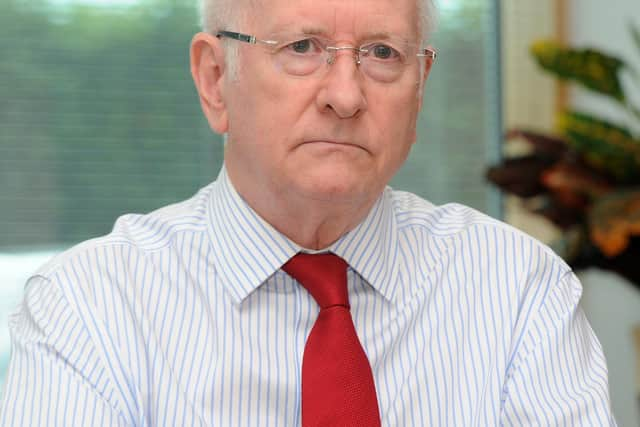South Yorkshire Police boss objects to plan to give more powers to cops to deal with protests
and live on Freeview channel 276
Dr Alan Billings, South Yorkshire’s Police and Crime Commissioner, expressed his view after the controversial Police, Crime, Sentencing and Courts Bill passed its second reading in the House of Commons this week and is now one step closer to becoming law.
If approved, the Bill would give police forces more powers to tackle non-violent protests which are significantly disruptive to the public.
Advertisement
Hide AdAdvertisement
Hide AdA new offence of intentionally or recklessly causing public nuisance would be created, where someone commits the offence if they cause ‘serious harm to the public’, which can include ‘serious annoyance, serious inconvenience or serious loss of amenity’.


Those convicted of the offence could be fined or sent to prison.
The Bill also grants officers more powers to impose conditions on protests, such as time and noise limits.
Dr Billings said: “The right to protest peacefully is a precious freedom that we have which is denied people in authoritarian countries.
Advertisement
Hide AdAdvertisement
Hide Ad“It allows people to raise awareness around issues that they think are important or are being neglected and it gives a safety valve when people feel strongly about matters. In a democracy voices have a right to be heard.


“The job of the police is to uphold the law and that includes enabling people to hold rallies and demonstrations that are peaceful – even when those protests are contentious – and the right of others to go about their lawful business.
“Sometimes when the tactics used by protestors are more than simple gatherings, the police can find themselves in a difficult place. We saw that in Rotherham a few years ago when the police had to manage marches by the Far Right which impacted on businesses, caused great offence and sought to divide communities.
“Those marches were managed and this suggests to me that the powers the police currently have are enough to keep law and order.
Advertisement
Hide AdAdvertisement
Hide Ad“In South Yorkshire I established a Policing Protests Panel consisting of members of my Independent Ethics Panel and other advisory groups.
“The Policing Protests Panel meets with the police before a protest, its members observe the protest and then debrief with the police afterwards. They offer the force advice and feedback.
“I think this is the right way to manage protests, with the police listening to local voices.
“I am, therefore, along with many other PCCs, concerned about the government Bill to give the police more powers.
Advertisement
Hide AdAdvertisement
Hide Ad“It would allow the police to be pro-active in imposing conditions where there could be ‘serious annoyance’ and it places an obligation on protestors to know about the conditions and to face criminal prosecution if they fail to comply. This is likely to lead to more serious confrontations between police and protestors.
“Some protests can be an annoyance, but protestors know that if they want to gain and retain public support and sympathy there are limits to what they can do.”